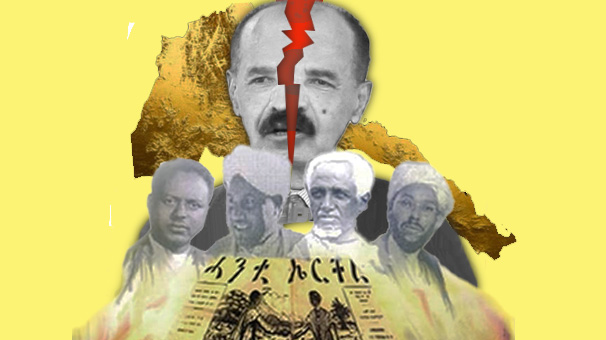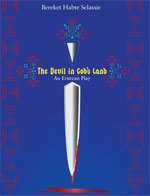Eritrea’s Unanswered Question: 34 Years of Isaias Afwerki’s Rule

Eritrea’s Unanswered Question: What 34 Years of Isaias Afwerki’s Rule Reveal About Sovereignty and Survival
In the beginning was the question—etched into the soul of the nation itself:
Can Eritrea survive—and thrive—as a truly sovereign, independent state?
For decades, global powers insisted we could not. Italy once tried to sell Eritrea to Belgium, citing economic burdens. It built ports and railways not for us, but to stage its conquest of Ethiopia. After Italy’s defeat, Ethiopia—backed by Britain, the United States, the Soviet Union, and France—continued the pattern. The 1952 federation, imposed without a referendum, and the 1962 annexation, carried out in defiance of our resistance, were not historical accidents. They were deliberate acts of erasure. In the eyes of the world, we were too tribal, too divided, and too unprepared for self-rule.
We, Eritreans, answered with fire and clarity.
Over a thirty-year struggle, we constructed the very state the world denied us. We built schools and clinics in caves and remote villages. We forged a nationalism that transcended religion, region, and ethnicity. In a region fractured by sectarianism and ethnic division, our civic nationalism was a defiant act of unity.
It was not born of convenience, but of conviction. It was the covenant of ኣይንፋላለ—لن نفترق—let us not be divided. Not imposed from above, but cultivated through shared sacrifice. It served us well; it will serve us well—we just need to be true and loyal to its spirit and letter.
Our revolution was not only military—it was moral and philosophical. Through unity and endurance, we gave the world an unambiguous reply: Yes—we can. And we have.
But thirty-four years into independence, that answer teeters on the edge of contradiction—undermined not by foreign invaders, but by a regime that has hollowed out the very institutions it once vowed to build.
Under President Isaias Afwerki, Eritrea has become one of the most secretive and repressive states in the world. Conscription is indefinite. Dissent is silenced. Generations of young Eritreans have been robbed of choice, of future. The country—once a symbol of African self-determination—now exports more refugees per capita than any nation on earth. Its economy stagnates. Its diplomacy is a black box. And its promise—of democratic renewal and dignity reclaimed—has withered beneath the iron weight of authoritarianism.
People are not allowed to vote at the ballot box, but they are voting with their feet—risking their lives and all that is dear to them. The results are in: Eritrea is no longer home. It is an inhospitable place, full of despair. Eritrean youth live by a grim motto: Get busy fleeing—or die trying.
Even the 2018 peace agreement with Ethiopia—a moment that could have marked a turning point—was reportedly negotiated without a single representative from Eritrea’s foreign ministry. This was more than an insult to civil servants and veteran tegadelti. It was a symptom of collapse. A state born to reclaim sovereignty now negotiates peace behind closed doors—without its people, without its parliament, without its voice.
The irony is cruel: Isaias Afwerki, through his total domination of political life, risks proving the very colonial lie the liberation war refuted—that Eritreans are incapable of self-rule.
But let us be clear: this is not the failure of our people. It is the failure of a presidency that refuses to end.
And here, the story need not end—it can turn. And we need to believe this with all our heart and soul. We must.
The opposition, both within Eritrea and across the diaspora, has long contended that our problem is not potential, but permission. That the nation has everything it needs—intelligence, resilience, pride, and geography—but is shackled by a system that fears its own citizens. It argues that if given the space to breathe, Eritrea could rise—not in the image of any foreign model, but on its own terms.
The real revolution now lies not in war, but in reclamation—of the question, of the state, of the people’s voice.
Can Eritrea govern itself?
The answer must not come from one man’s rule or from silence enforced by fear. It must emerge again from the will of the citizenry—from the poets and professors, the students and soldiers, the exiles and the elders.
This moment demands a national awakening. A revival of transparency, public discourse, and the institutions once envisioned in the heat of liberation. A diplomacy rooted not in secrecy and a personality cult, but in dignity, accountability, and dialogue.
We need to let the normal things roll in. The fight, first and foremost, is then to bring normalcy.
If we seize this opportunity, we can finish what we began in the liberation struggle.
Only then can we fulfill the dream first born in Mount Adal, then took gigantic steps in Nakfa, and whispered all across the diaspora: a nation that speaks not through trauma, but through truth.
Let us not allow Isaias to become the final punctuation mark on a sentence written in blood and hope. Let us not allow him to become a tragic echo of imperial doubt.
Let Eritrea speak for itself again. Let it rise—not as a monument to survival, but as a beacon of sovereignty fulfilled.
Because sovereignty was never a myth. It was a mandate. And it still is.




Awate Forum